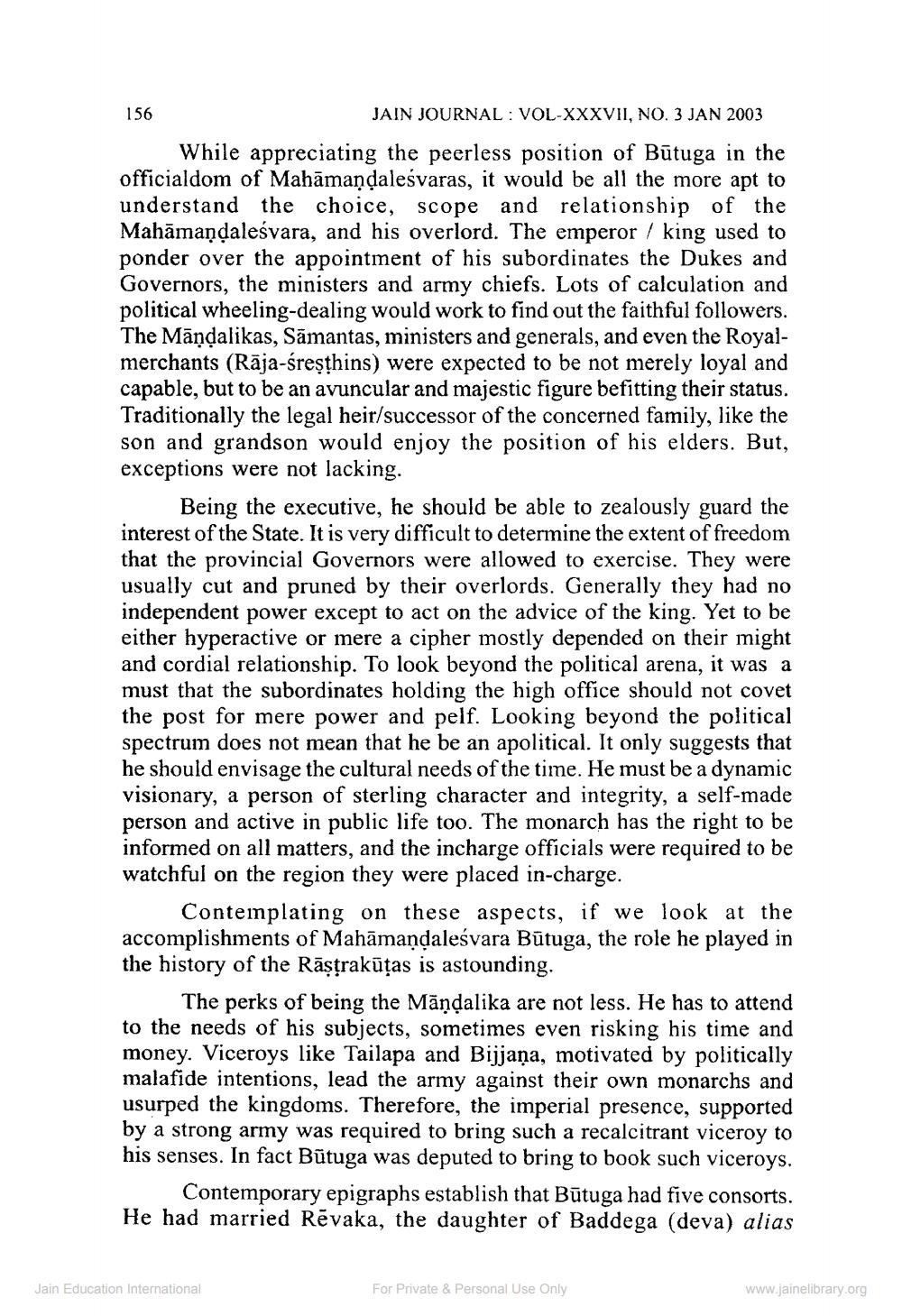________________
156
JAIN JOURNAL : VOL-XXXVII, NO. 3 JAN 2003
While appreciating the peerless position of Būtuga in the officialdom of Mahāmandalesvaras, it would be all the more apt to understand the choice, scope and relationship of the Mahāmandalesvara, and his overlord. The emperor / king used to ponder over the appointment of his subordinates the Dukes and Governors, the ministers and army chiefs. Lots of calculation and political wheeling-dealing would work to find out the faithful followers The Māndalikas, Samantas, ministers and generals, and even the Royalmerchants (Rāja-śreșthins) were expected to be not merely loyal and capable, but to be an avuncular and majestic figure befitting their status. Traditionally the legal heir/successor of the concerned family, like the son and grandson would enjoy the position of his elders. But, exceptions were not lacking.
Being the executive, he should be able to zealously guard the interest of the State. It is very difficult to determine the extent of freedom that the provincial Governors were allowed to exercise. They were usually cut and pruned by their overlords. Generally they had no independent power except to act on the advice of the king. Yet to be either hyperactive or mere a cipher mostly depended on their might and cordial relationship. To look beyond the political arena, it was a must that the subordinates holding the high office should not covet the post for mere power and pelf. Looking beyond the political spectrum does not mean that he be an apolitical. It only suggests that he should envisage the cultural needs of the time. He must be a dynamic visionary, a person of sterling character and integrity, a self-made person and active in public life too. The monarch has the right to be informed on all matters, and the incharge officials were required to be watchful on the region they were placed in-charge.
Contemplating on these aspects, if we look at the accomplishments of Mahāmandalesvara Būtuga, the role he played in the history of the Rāstrakūtas is astounding.
The perks of being the Māndalika are not less. He has to attend to the needs of his subjects, sometimes even risking his time and money. Viceroys like Tailapa and Bijjaņa, motivated by politically malafide intentions, lead the army against their own monarchs and usurped the kingdoms. Therefore, the imperial presence, supported by a strong army was required to bring such a recalcitrant viceroy to his senses. In fact Bütuga was deputed to bring to book such viceroys.
Contemporary epigraphs establish that Būtuga had five consorts. He had married Rēvaka, the daughter of Baddega (deva) alias
Jain Education International
For Private & Personal Use Only
www.jainelibrary.org




